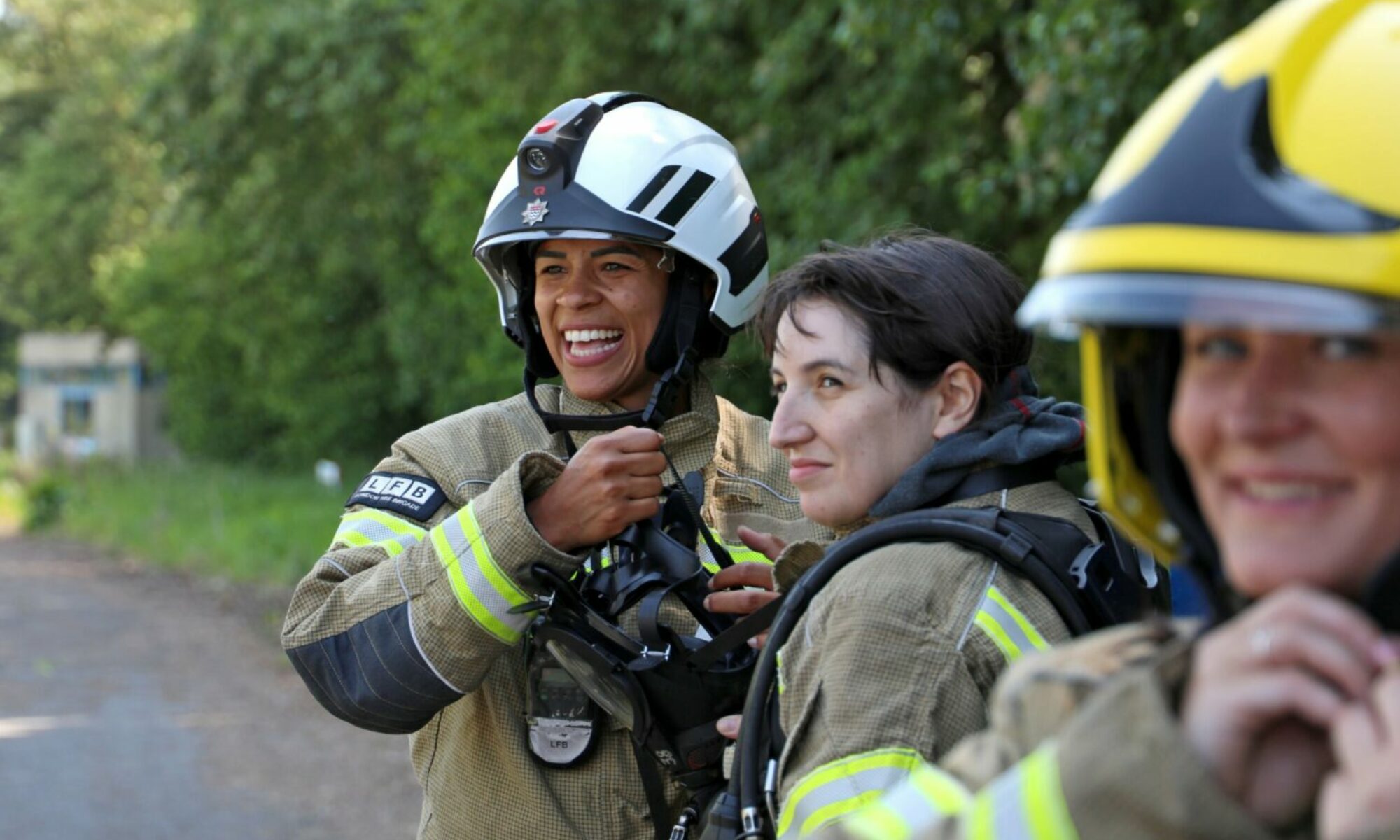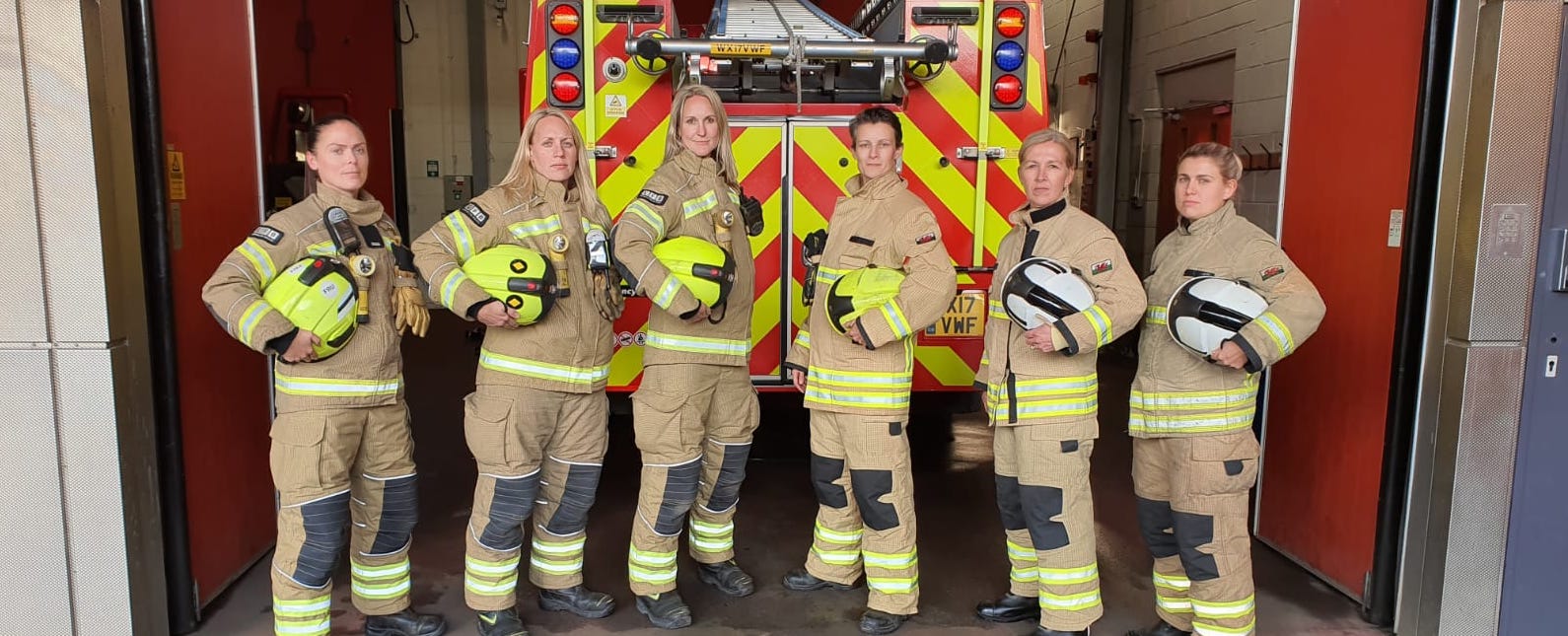Antarctic Fire Angels are six firefighters from London Fire Brigade (LFB) and South Wales Fire and Rescue Service (SWFRS). They have their sights set on being the first emergency service team to ski coast across Antarctica. All this and on a route never done before by an all-female team.
Empowering the next generation
Antarctic Fire Angels want to inspire the next generation to smash stereotypical barriers to achievements. Ultimately, they want to leave a legacy by having a positive impact on future recruitment, so others can benefit from a rewarding career in the service. They also want to raise awareness around mental health, especially post-traumatic stress disorder (PTSD).
Inspirational speaker sparks idea
A number of the team support WFS through paid Membership and have attended our National Training and Development Event, where Nakita Ross delivered Urban Search and Rescue (USAR) workshops. And it was at our 2019 event where Georgina and Nakita were inspired by our keynote speaker, Sophie Montagne, to plan their own Antarctic challenge. Sophie was part of the first female team to ski across the Antarctic continent.
The journey and fundraising
In 2023, they plan to cover 1900km from Berkner Island to the Ross Ice Shelf. And in temperatures of -50 over around 70 days. That’s 27km every day!
Physical training starts in 2020 and includes a cross country skiing course, mountain navigation, crevasse rescue and polar expedition training.
The expedition will be funded through donations (they need to raise a total of £500,000) but they want to fundraise for their chosen charities too. These are The Fire Fighters Charity, the Fawcett Society and PTSD999.
We caught up with Firefighter Georgina, Firefighter Nikki, Leading Firefighter Nakita and Watch Manager Rebecca to find out more about their passions and plans.
Q&A: Antarctic Fire Angels
Q: Our key-note speaker, Sophie Montagne, was the impetus for your idea. Can you describe in a nutshell how you felt listening to her story?
Nakita Ross
A: I think taking on a challenge is in a Firefighters blood! When Sophie was talking, it was amazing to hear all about how their adventure unfolded. It was completely inspiring. One sentence really struck a chord; “proving to women what women can do”. It was a case of, “why can’t we do the same?” and luckily Georgina and I had exactly the same lightbulb moment. And so the Fire Angels were born!
Q: What are you looking forward to most/least about being in the snow?
Nikki Upton
A: I think I’m most looking forward to the beauty of the surroundings – most people don’t get the opportunity to experience such a remote and stunning part of the world, and it will hit me then how very lucky I am to be there. Plus I’d love to see penguins in their natural environment! The least inviting prospect of spending so much time in the snow has got to be the toilet situation – especially when that time of the month hits!
Q: For those who may not know, what is a pulk?
Georgina Gilbert
A: A pulk is a type of sled that we will be dragging behind us that will contain all of our equipment, from tents to food to clothes. It’s effectively our life raft that will probably weigh around 85kg by the time it’s fully loaded.
Q: PTSD and depression are cited as the most common mental health problems affecting emergency staff. Fire Angels have been very open about their own experiences. Can you tell us more?
Nakita Ross
A: Many of the Fire Angels will have their own story to tell throughout our journey to make this expedition a reality but just by attending the Women in the Fire Service Training and Development Event opened the door to dealing with one of us confronting our PTSD.
The first year I attended was after the Grenfell tragedy and LFB Commissioner Dany Cotton did a talk for attendees, including the importance of tackling PTSD. Thanks to a one-to-one chat with Dany, I approached the Brigades counselling service to see a trauma specialist.
I then became incredibly aware of other members of the Brigade suffering from poor mental health and PTSD. There seemed to be some small progress around removing the stigma with the catchphrase “it’s ok not to be ok”. But what about our emergency services? We are here to pick up people on their worst days, putting everything on the line. It was time to help support our fellow Firefighters and emergency services when they fall down.
Q: You’ve all been involved in all kinds of sport, from jujitsu, triathlon and rugby to open water swimming and running. Do you have a sporting role model?
Rebecca Newton
A: I’m always in awe of Non Evans. She embodies the spirit of sport. From international judo to being my childhood hero playing for Wales. Now in retirement, she still strives to stay fit and to inspire others to eat well and stay healthy.
Q: How do you see the team functioning successfully as a unit?
Nikki Upton
A: From our very first meeting, we agreed communication was vital and in order for us to get to know each other properly. We were very clear about how our personal experiences in life shaped us into the women we are today. After that, we discussed our strengths and weaknesses and how these might affect us during the expedition.
By knowing each other’s vulnerabilities, we will know how best to support one another during difficult times. I feel that we’ll work successfully as a unit because we have varying personalities/ages/life experiences meaning we can all learn from each other to become a stronger team.
Q: You’re keen for WFS Members and others in the network to get involved. How can they support you?
Georgina Gilbert
A: We are planning a ‘Tour of the UK’ in 2020/21 where we’ll be doing training walks and wild camping. We are super keen to get as many people joining us as possible. And anyone can come including children and dogs. To clarify, walks will be long but not difficult or technically challenging. However, more technical walks will be planned and anyone interested is welcome to get involved. We want to cover as many areas of the UK as possible and urge anyone interested in organising one for their area to get in touch. We also have our GoFundMe account.
Q: Is there one item you’ll pack that you just can’t leave behind?
Rebecca Newton
A: A photo of my kids. I know in the moments when I’m missing them, seeing their faces smile back at me will help while I wait for a call home to hear their voices. I know that missing them will be my biggest mental challenge. On days when its physically tough, knowing that every step gets me closer to home will carry me through.

